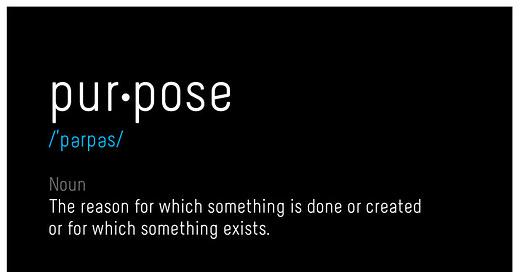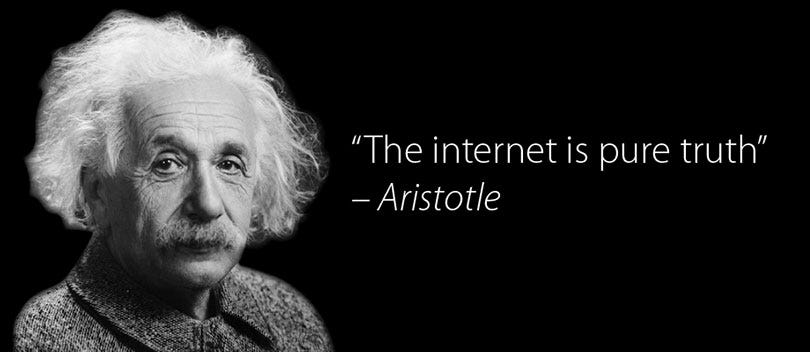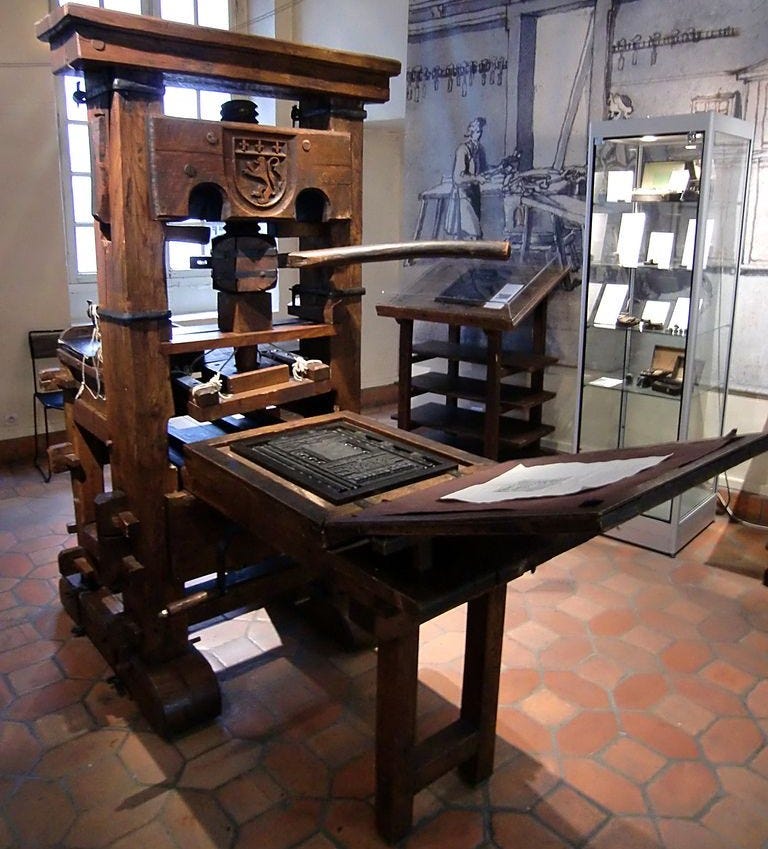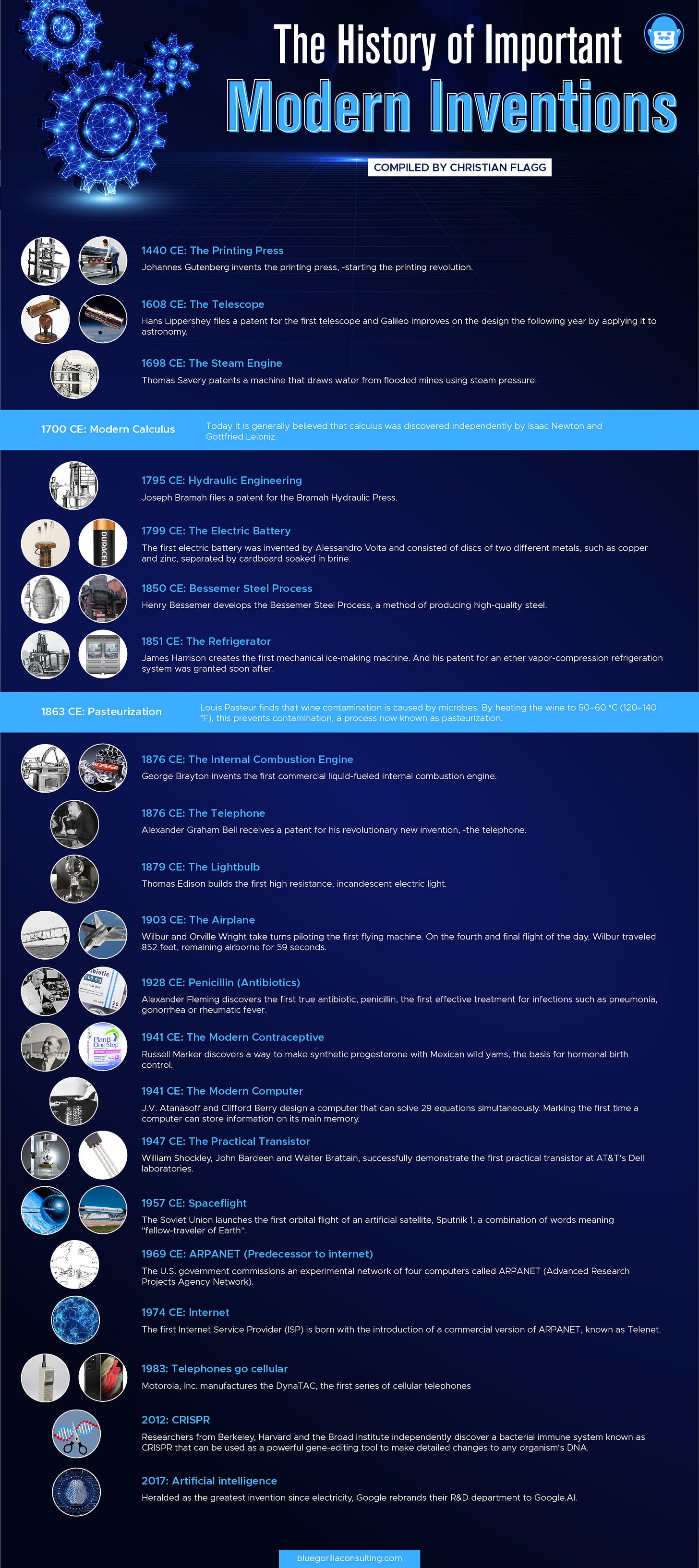No seriously, what makes an invention great; or even, what’s progress?
This line of questioning often goes hand in hand with another central question, “What is good?”
Aristotle claims that “…for all things that have a function or activity, the good and the ‘well’ is thought to reside in the function”
For example, a good kitchen knife cuts well. And a dull kitchen knife is a bad kitchen knife.
In a similar way, a sharp kitchen knife is likely a bad hammer.
In the age of relativism it seems like these questions can have any number of “right” answers. Without sidetracking too much, for me, progress can be defined as:
An improvement in the well-being of human beings.
In the last post, The Evolution of Technology - Part 2, we reviewed key landmarks in the history of technology and society specific to prehistory and classical antiquity.
And the final point was that history consistently testifies that in order for a society to function, truth matters.
That’s why the greatest invention ever created was created with the function of discovering what is true.
An Important Sidebar: What is Technology?
Real quick, we need to get on the same page about what technology really is.
Today we often associate it with circuitry, computer chips, test tubes, and the newest smartphone, but it’s much broader than that.
The term technology comes from the Greek word techne, meaning art and craft, and the word logos, meaning word and speech. It was first used to describe applied arts, but it is now used to describe advancements and changes which affect the environment around us.
For simplicity’s sake, technology is the application of specific knowledge to solve a problem.
A 500 Year Rewind…
What makes the renaissance so beautiful? It wasn’t just an explosion of art and literature, but a rediscovery of lost knowledge.
The dark ages got its name specifically because of economic, intellectual and cultural decline. There was very little trust while feudalism reigned.
Under Feudalism, nobility held lands from the Crown in exchange for military service, while the peasants (serfs) were obliged to live on their lord's land and pay homage, labor, and a share of the produce, notionally in exchange for military protection.
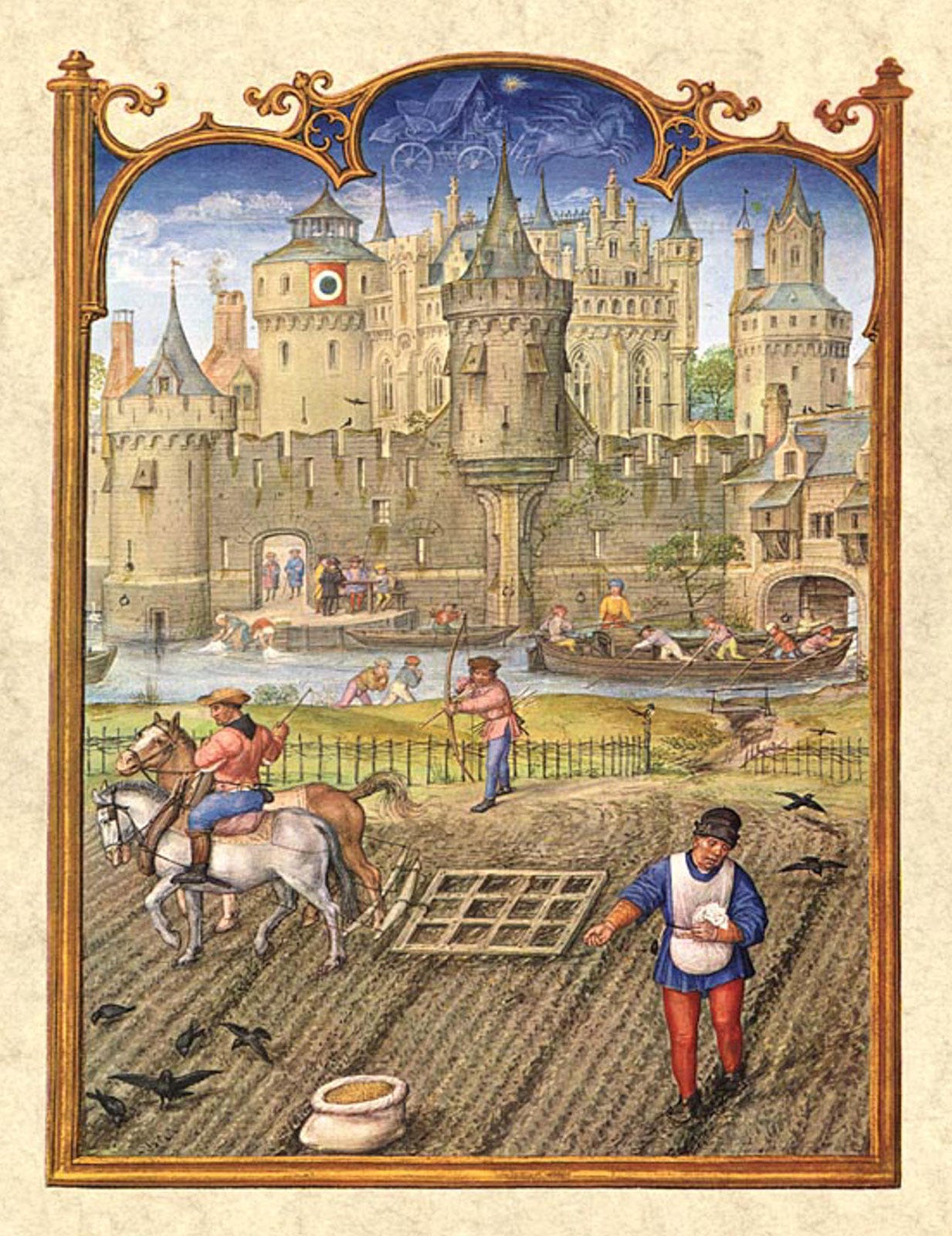
Families that accumulated enough property and wealth during the agricultural revolution built castles and commanded farmland in exchange for protection with heavy, expensive weaponry. Their “royal lineage” was a consequence of generational wealth.
Kingdoms warred over resources and territory, pillaging one another's villages, invading foreign fortresses, and plundering the castles’ spoils.
You could say the renaissance brought with it a resurgence of trust and truth. And one of the greatest technologies ever invented worked as a catalyst for the renaissance.
The Scientific Method was the greatest invention in recorded history not only for its ability to find truth in public discourse, but in natural law.
The History of the Scientific Method
The history of the scientific method is a long arduous process spanning thousands of years, with key figures making important contributions all along the way.
You could say it’s been a thousand year prototype.
Aristotle is recognized as writing the earliest formal publication on the nature of scientific inquiry in the western tradition, one which embraced observation and reasoning about the natural world. In the Prior and Posterior Analytics, Aristotle reflects first on the aims and then the methods of inquiry into nature.
For Aristotle, empiricism, careful observation (passive observation, not controlled experiment), is the starting point. He also believed careful reflection on the nature of the knowledge being sought would best help the observer reflect on cause and effect, or why something is.
In addition to careful observation, the scientific method requires logic as a system of reasoning for properly arranging, but also inferring beyond, what is known by observation. Methods of reasoning may include induction, prediction, or analogy, among others. Aristotle’s system was collected under the title the Organon.
During the medieval period, figures such as Albertus Magnus (1206–1280), Thomas Aquinas (1225–1274), Robert Grosseteste (1175–1253), Roger Bacon (1214/1220–1292), William of Ockham (1287–1347), Andreas Vesalius (1514–1546), and Giacomo Zabarella (1533–1589) all worked to clarify the kind of knowledge obtainable by observation and induction, the source of justification of induction, and best rules for its application.
Many of their contributions we now think of as essential to science.
During the Scientific Revolution these various strands of argument, experiment, and reason were forged into a dominant epistemic authority.
The Book of Nature, according to the metaphor of Galileo Galilei (1564–1642) or Francis Bacon (1561–1626), was
“written in the language of mathematics, of geometry and number.”
This motivated an emphasis on mathematical description and mechanical explanation as important aspects of scientific method.
While much of his work has been improved upon over time, Francis Bacon's seminal work Novum Organum, became the cornerstone for the modern scientific method still in use today.

His work, and countless others in the centuries leading up to it, were cemented in history by another key invention.
Goldsmith and inventor Johannes Gutenberg was a political exile from Mainz, Germany when he began experimenting with printing in Strasbourg, France in 1440.
He returned to Mainz several years later and by 1450, had a printing machine perfected and ready to use commercially: The Gutenberg press.
The printing press led to the scientific and intellectual resurgence in the late 2nd millennium.
It is to Isaac Newton (1642–1727), however, that historians of science and methodologists have paid greatest attention, -and for good reason.
Isaac literally invented calculus out of sheer curiosity. He asked the question,
“Why doesn’t the moon fall like an apple from an apple tree?”
Thomas Jefferson, the third President of the United States, wrote:
"Bacon, Locke and Newton. I consider them as the three greatest men that have ever lived, without any exception, and as having laid the foundation of those superstructures which have been raised in the Physical and Moral sciences".
Here’s an overview of just some key inventions over the last 500 years.

